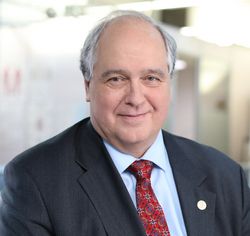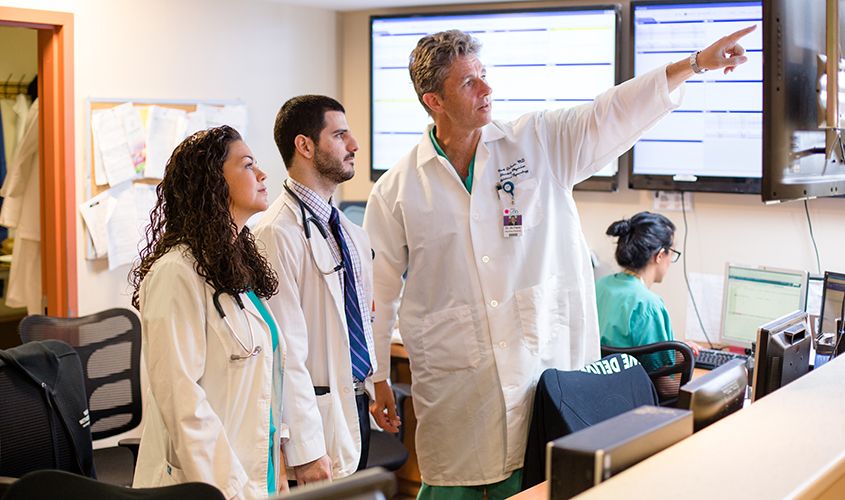Congress recently passed a measure to fund 1,000 postgraduate residency positions over five years as part of the Medicare-supported program—the first increase in nearly 25 years according to the American Association of Medical Colleges (AAMC). St. George’s University President Dr. G. Richard Olds explained to SGU News what the increase means for our medical students. In addition, Dr. Olds also recently appeared on Action News Jax (Jacksonville, FL) to discuss the new medical residency funding in the stimulus package.
St. George’s University:  What does this mean for SGU medical students, especially those applying for residency?
What does this mean for SGU medical students, especially those applying for residency?
Dr. Olds: This new legislation should help our students in the Match no matter what specialty they decide to go into. Also, these new slots are permanent in contrast to the teaching health center funds that have to be renewed by Congress every few years.
SGU: What specialties will be included?
Dr. Olds: Potentially all specialties are included, but an institution can’t just expand specialty slots. Half must be for primary care, which includes OB/GYN.
SGU: Residency positions in rural and underserved communities were highlighted as a particular focus in the legislation. Why is that important?
Dr. Olds: The population is both growing and aging. The real problem, however, is a maldistribution of doctors geographically and a maldistribution of doctors by specialty. The first issue points out that affluent urban and suburban areas of the US often have a surplus of doctors, while underserved rural and urban areas have severe shortages. In big states, for example, the surpluses in affluent areas often mask the severity of shortages in rural and poor urban areas.
The second problem of maldistribution by specialty is created by the fact that 70 percent of US medical students specialize. The country needs over half to go into primary care fields. To make this issue worse, primary care doctors as a group are older, and age and COVID-19 are driving them into retirement faster than specialists.
SGU: How and why did these positions become available?
Dr. Olds: The issue that is causing problems in the physician pipeline are residency slots—not medical schools and students. Although there are far too few US medical schools for the current need, 25 percent of all residents in US residencies are international medical school graduates (such as SGU grads), and there are far more doctors who want to train in the US than we have residency slots to accommodate them. The shortage of graduate medical education (GME) slots is driven by a decision made in 1997 to cap GME funding by Medicare. Pressure has been growing to increase GME slots because of the growing doctor shortage. This is the first time in over 20 years that Medicare has increased the GME caps on most teaching hospitals.
While the number of additional residencies will not be enough to solve the doctor shortage in the US, and only a percentage of these slots will go to rural primary care residencies where they are most needed, it’s a start.
SGU: What is the rough number of Medicare-funded residency positions now, and why is adding these residency positions such an important breakthrough?
Dr. Olds: Medicare currently funds about 90,000 GME slots, the US Department of Veterans Affairs funds about 12,000, and children’s hospitals fund about 7,000 each year. Remember that training in internal medicine or pediatrics takes three GME slots spread over three years; general surgery five GME slots, etc., since you need a funded slot each year of your training. If you crunch the numbers, we have the ability to train about 35,000 new residents each year, mostly through the Match.
While the addition of 1,000 slots spans five years, and some of those slots will go to big teaching hospitals that are currently over their cap, it’s the first time in decades the number of Medicare slots have increased. It’s a big deal.
– Laurie Chartorynsky


